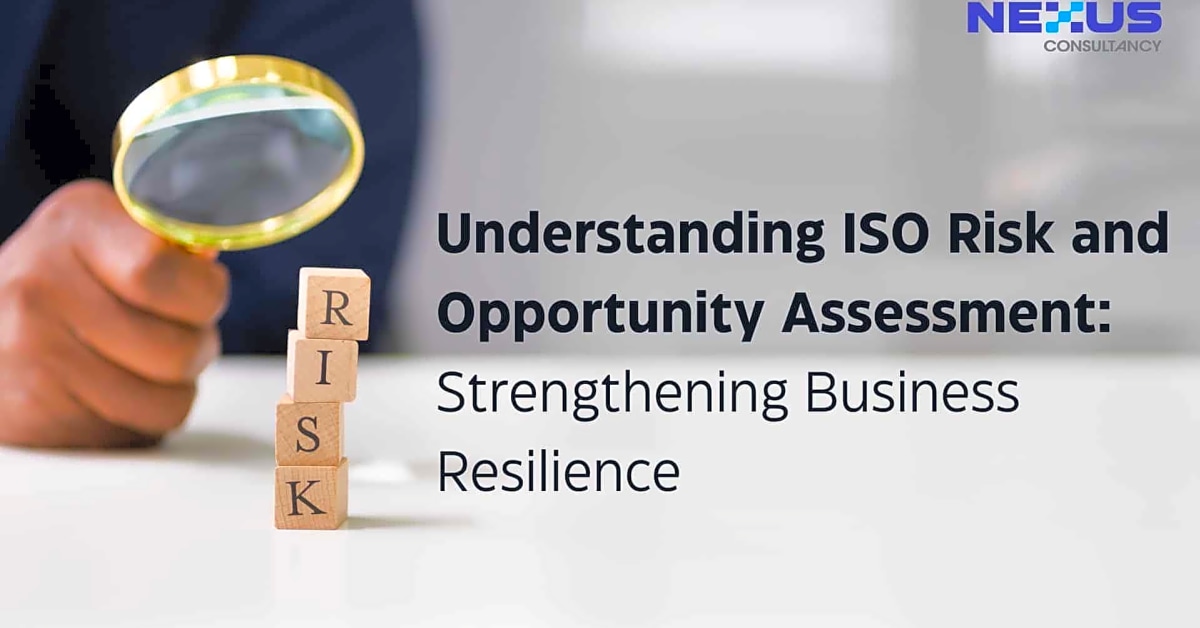Understanding Risk Assessment for Business Advisory
 by Consultant
by Consultant

In today’s fast-paced business world, risk assessment plays a crucial role in ensuring the success and stability of any organization. It involves the identification, evaluation, and prioritization of potential risks that may impact a company’s operations, finances, and reputation. With proper risk assessment, businesses can proactively mitigate potential threats and make informed decisions to protect their interests. In this article, we will delve into the concept of risk assessment and its significance in business advisory, particularly in the context of strategic planning and business planning. So, if you’re looking to enhance your understanding of risk assessment and its application in the corporate landscape, read on!
First, it’s important to define what we mean by risk assessment. In simple terms, risk assessment is the process of identifying potential risks to your business and evaluating their likelihood and impact. This allows you to prioritize which risks to address and develop strategies to mitigate or avoid them. As a business owner, it’s crucial to have a thorough understanding of risk assessment in order to make informed decisions and protect your business from potential threats.
For those seeking guidance on improving their business, it’s important to understand that risk assessment is a key component of overall business strategy. By identifying potential risks and developing plans to address them, you can minimize the impact of these risks on your business. This is especially important for financial management, as poor risk assessment can lead to financial losses or even bankruptcy. Additionally, risk assessment plays a crucial role in strategic planning, as it allows you to anticipate potential obstacles and adjust your plans accordingly.
In terms of business growth and development, risk assessment is essential for identifying potential opportunities and threats. By analyzing the risks associated with certain growth strategies, you can determine which options are best suited for your business and avoid costly mistakes. Overall, risk assessment helps to ensure that your business is on a solid foundation and positioned for long-term success.
Understanding the Types of Risks
When it comes to risk assessment, there are several types of risks to consider. These include financial risks, operational risks, legal risks, and reputational risks. It’s important to understand each type and how they may impact your business.
The Process of Risk Assessment
To effectively assess risks, there are several steps you can follow. These include identifying potential risks, evaluating their likelihood and impact, developing strategies to mitigate or avoid them, and regularly reviewing and updating your risk assessment.
The Importance of Professional Consulting Services
While it’s possible to conduct risk assessments on your own, seeking professional consulting services can greatly benefit your business. Consultants have the expertise and experience to identify potential risks and develop effective strategies to address them. This can save you time and resources, allowing you to focus on other aspects of your business.
In conclusion, risk assessment is a crucial aspect of business advisory that should not be overlooked. By understanding the types of risks, the process of assessment, and the benefits of seeking professional consulting services, you can make informed decisions and protect your business from potential threats. As you continue on your business journey, remember the importance of risk assessment in achieving long-term success.
Related Posts
Learn about the importance of risk assessment in business advisory and how it can help improve your business strategy and overall success.
Business Consulting Articles
- About cookies and cookie consent
- Advisory Consulting
- Business Growth Consulting | Unlocking Your Business Potential
- Business Process Consulting Services Can Improve Your Business
- Organizational Development Consultant
- Privacy Policy
- Strategic Advisory Services Explained: A Comprehensive Guide
- Top 100 Advisory Consulting Terminology
- Top 100 AI as a Service (AIaaS) Terminology
- Top 100 Business Consulting Terminology
- Top 100 Executive Coaching Terminology
- Top 100 Operation Management Terminology
- Top Advisory Consulting Terminology
- Top AI as a Service (AIaaS) Terminology
- Top Business Consulting Terminology
- Top Executive Coaching Terminology
- Top Operation Management Terminology
- AI Generated Q&As
- Benefits of advisory consulting
- Blog
- Boutique Firms
- Budgeting
- Business advisory consulting
- Business Consulting
- Business consulting services
- Business Management
- Business planning
- Case studies on specific industries
- CEO
- CFO
- Change management
- CIO
- Client success stories
- CMO
- Collaboration and partnerships
- Consulting
- COO
- Creative thinking
- Critical thinking skills
- Culture and values
- Executive Coaching
- Expert guidance and insights
- Financial advisory consulting
- Financial analysis
- Financial consulting
- Financial Consulting
- Financial consulting services
- Financial strategies
- Fractional Executive
- Goal setting
- Human Resource Management
- Increased efficiency and profitability
- Industry knowledge and experience
- Insight
- Investing
- IT Consulting
- Leadership and management
- Leadership styles
- Management Consulting
- Management Consulting
- Market analysis
- Market analysis
- Marketing consulting
- Marketing strategies
- Marketing strategies
- Methodologies
- Operational strategies
- Organizational structure
- Process improvement
- Professional qualifications and certifications
- Retirement planning
- Risk analysis
- Risk management and compliance
- Sales techniques
- Scaling and expansion
- Strategic consulting
- Strategic foresight
- Team diversity and collaboration
- Technology advisory consulting
- Technology consulting services
- Technology solutions
- Testimonials from satisfied clients
- Tier 1 Firms
- Tier 2 Firms
- Vision and direction
- What is Advisory?
- What is Consulting?
